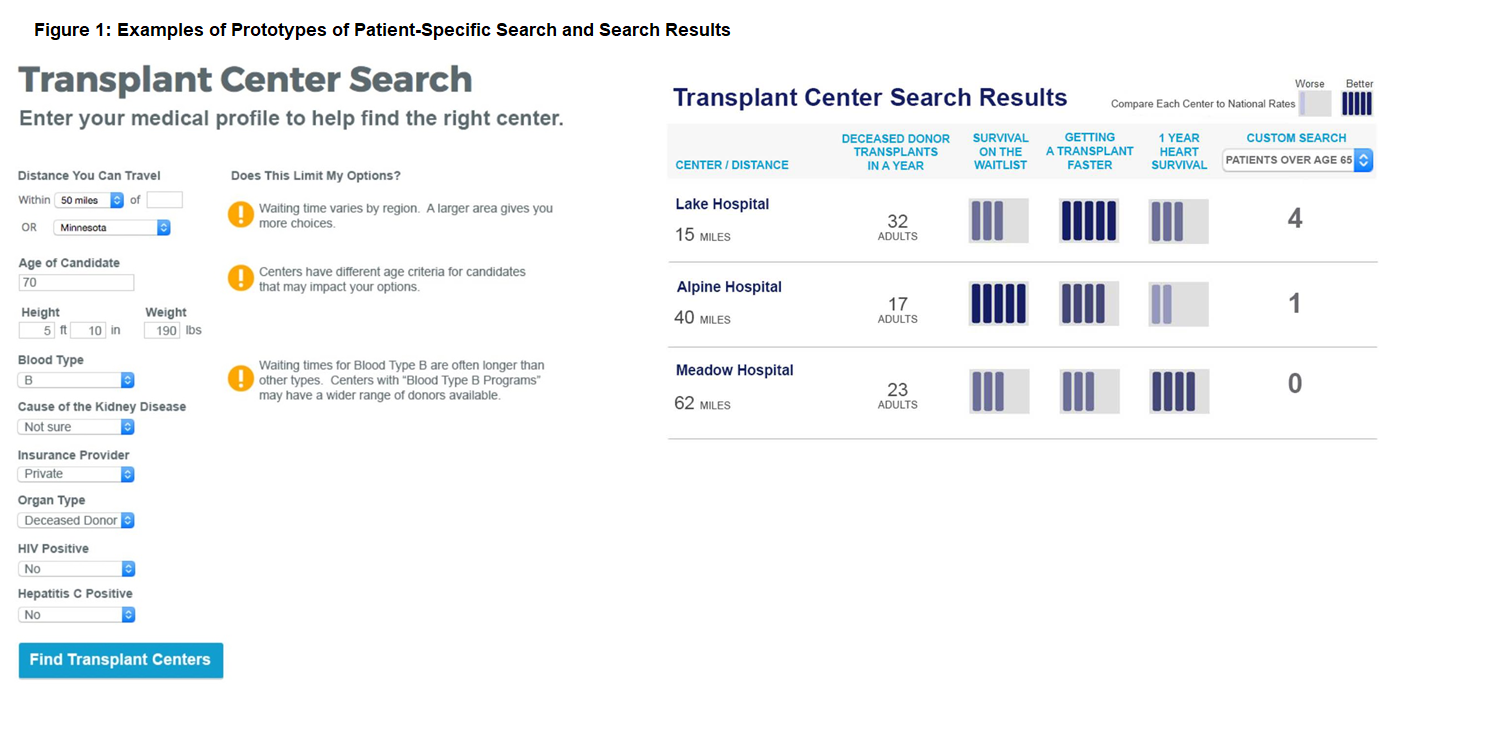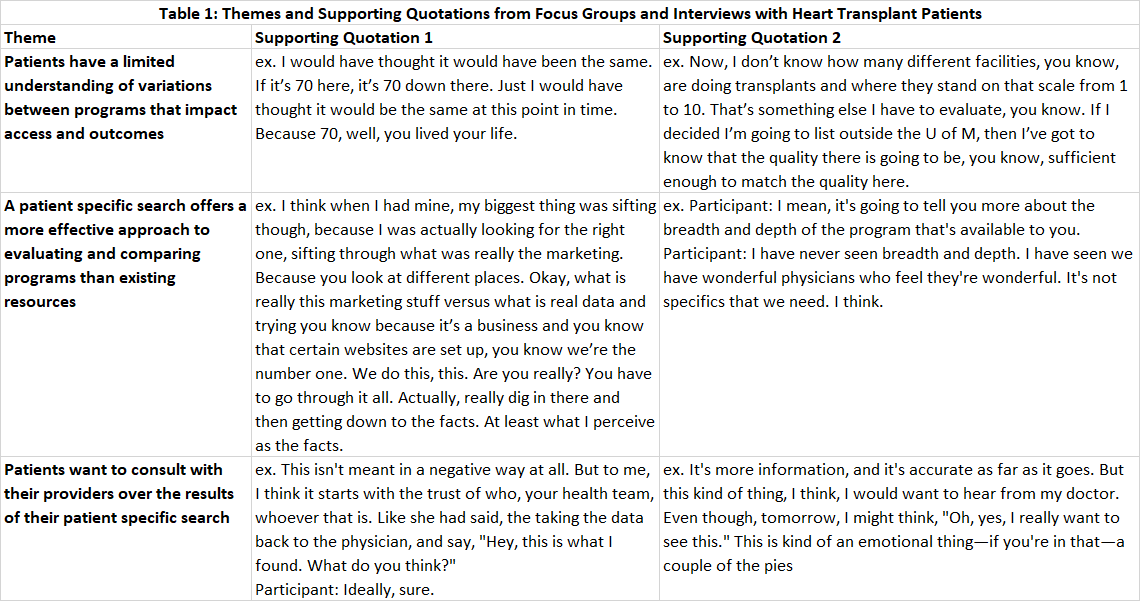Developing a Patient Specific Search of Heart Transplant Programs: Feedback from Heart Transplant Candidates and Recipients
1Nephrology, Hennepin Healthcare Research Institute, Minneapolis, MN, 2College of Design, University of Minnesota, Minneapolis, MN, 3Hennepin Healthcare Research Institute, Minneapolis, MN, 4Cardiology Division, University of Minnesota Department of Medicine, Minneapolis, MN, 5Department of Medicine, Hennepin Healthcare, Minneapolis, MN
Meeting: 2020 American Transplant Congress
Abstract number: D-191
Keywords: Heart, Heart transplant patients, Waiting lists
Session Information
Session Name: Poster Session D: Non-Organ Specific: Disparities to Outcome and Access to Healthcare
Session Type: Poster Session
Date: Saturday, May 30, 2020
Session Time: 3:15pm-4:00pm
 Presentation Time: 3:30pm-4:00pm
Presentation Time: 3:30pm-4:00pm
Location: Virtual
*Purpose: Patients seeking a heart transplant must contemplate numerous factors when making decisions regarding their care. Waitlist acceptance criteria, donor acceptance practices and outcomes often vary between transplant programs and convey significant implications for patients with varying degrees of clinical urgency. We sought to evaluate heart transplant patients’ impressions of prototypes of a web-based search of transplant program reports that provide users with patient-specific information.
*Methods: We conducted 2 semi-structured interviews and 1 focus group with local heart transplant candidates plus 2 focus groups with recipients of heart transplants recruited nationally (n= 20). Participants were shown printouts of the online Scientific Registry of Transplant Recipients (SRTR) transplant program report card and prototypes of the customizable search tool to evaluate the efficacy of reporting patient-specific search results for identifying transplant centers that treat patients like them. [Figure 1]
*Results: Perceptions of prototypes of the customized search tool and results varied, but were positive overall and support adding the customized search to the SRTR website. [Table 1] Participants’ comments reveal significant barriers to identifying and evaluating transplant centers and suggest that patient-specific search results reduce cognitive burden and the anxiety associated with selecting a center and accessing the waitlist.
*Conclusions: Patient-specific information (shown alongside performance outcomes) is valued by patients and central to enabling informed decisions making on treatment options. The patient-specific transplant program search tool will be available at www.transplantcentersearch.org.
To cite this abstract in AMA style:
McKinney WT, Bruin MJ, Schaffhausen CR, Chu S, Synder J, Martin CM, Alexy T, Kasiske BL, Israni AK. Developing a Patient Specific Search of Heart Transplant Programs: Feedback from Heart Transplant Candidates and Recipients [abstract]. Am J Transplant. 2020; 20 (suppl 3). https://atcmeetingabstracts.com/abstract/developing-a-patient-specific-search-of-heart-transplant-programs-feedback-from-heart-transplant-candidates-and-recipients/. Accessed January 20, 2026.« Back to 2020 American Transplant Congress


